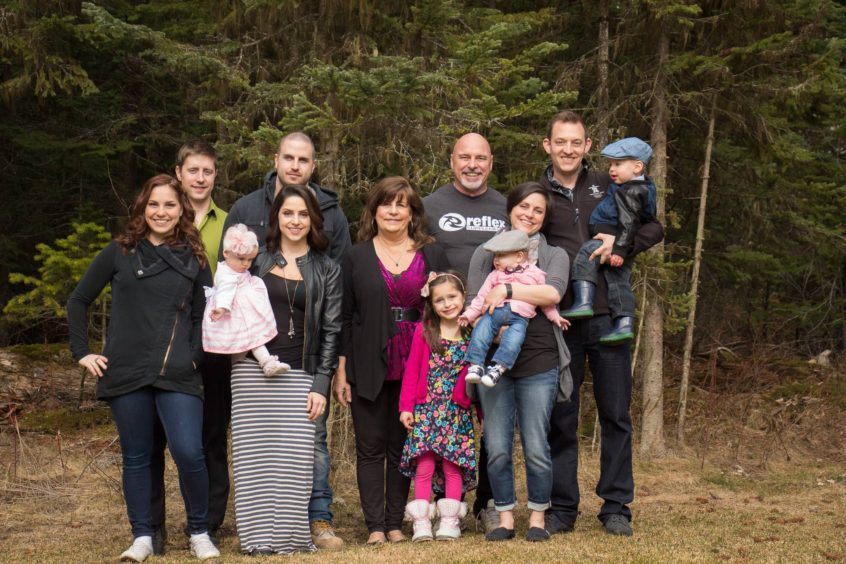Processing loss is uncomfortable, not just for someone who has lost, but often for those close to that person as well.
I have never suffered from the loss of a pregnancy or a child, but I’ve had friends who have. It’s hard to know how to support them and what, if anything, to say. My heart aches for my family and friends who have lost… children, parents, family members… communities.
Losing what I thought was another kind of “family” has been hard but what I’ve learned from it has been invaluable. I’ve learned so much about grief, how children process their surroundings and internalize their emotions, and adults with infantile and underdeveloped emotional awareness.
I want to share a few thoughts with you about how I’ve started processing my loss.
- Feeling all the feels. I believe this to be the number one thing that has helped me so far. I have tried NOT to stifle how I feel. I have tried to acknowledge all of my hurts, wounds, anger, and brokenness. While feeling these things, it’s important to note a few things; it affected my children and my friendships in various ways, it made the strength of my various friendships apparent, it made the strengths (and weaknesses, but mostly strengths) in my relationship with my spouse apparent, it has highlighted the roles each member of my immediate family plays in my emotional well-being. I feel that I’m fairly perceptive to those I’m close to and be allowing myself to be transparent in my grief it became obvious to me it really affected my children. I tried very hard to remain ‘constant’ for them while allowing myself to grieve and release the anger I had in a healthy way.
I think repressing how you feel stifles the ability to heal from hurt and/or loss. By ignoring your emotional being you’re denying yourself wholeness. There are healthy ways to process your feelings - There are healthy ways (and not-so-healthy-ways) to express and process how you feelI tend to talk about my feelings a lot. I’m an external processor. I process things as they’re happening, orally. This isn’t the case for everyone (and I actually think it’s not the case for most). I have found as I’ve been processing my grief, hurt and anger that it’s made a lot of my friends quite uncomfortable. People aren’t interested in hearing things that are uncomfortable, sometimes even your closest friends can’t handle the weight of your reality (although I’m very lucky to have a handful of friends who are capable of dealing with such things). So if, like me you are an external processor, finding someone to talk to is imperative. If you’re an internal processor it is equally imperative to find an outlet (you probably just won’t need it as often). Keeping your emotions bottled up will produce only a festering wound. Finding a counsellor or therapist isn’t a sign of weakness; if you break your arm, you’re going to go to a doctor, right? Same thing. If you’re broken, get help.
I don’t recommend writing angry letters to people who hurt you (although it was mildly satisfying, I can’t say I’m proud to have done it). - Focus on what is before you now, and don’t (if you can help it) look back.There’s a lot of shit in the rearview mirror. Why would you want to focus on the “what-if”s if there’s nothing you can do to change it? Whatever happened (death, loss, mistakes) is in the past and you can’t change it. This isn’t to say you should try to erase all your memory of whatever it is that you’ve lost, especially the good memories! Focus on the good, lay the bad to rest and move on. This is so much easier said than done and if I’m going to be honest I’m really struggling with it, but I know it’s true and I’m trying. In my case, I’ve lost much of my community. People I thought were friends (close friends). I want to go to church for Easter Sunday tomorrow and have everything the way “it was”. That’s not going to happen and I need to focus on the beauty of what’s before me; I get to go to a gathering of people who do support me with my family to celebrate the death and resurrection of my Saviour. How lucky am I to still have people in my life that care for me and my family, with an intensity I never could’ve anticipated? Everything that has happened has taught me a great deal and given me an awkward gift, but a gift nonetheless.
- Don’t hold other’s stunted emotional awareness against them.
Many people are not emotionally intelligent. In fact, most people are quite stunted in their emotional awareness. This may or may not be their fault, but whatever the case is, it’s ok to love them even if they’re unsound. It’s ok to be angry with them, but it’s not ok to let that anger become hate. Hate is never ok. Hate is where all things unhealthy spawn. Hate is the antithesis of everything I believe in. If you are angry with someone (and I believe it’s ok to be angry), I think it is important to tell that person why you are angry with them. Now, this opens a very large can of worms. In telling someone that you are angry, you are giving them an opportunity to respond to you (I’ll also note how you tell them is of the utmost importance as well, kindness wins everytime). Not everyone will respond in a kind way. You have to consider and weigh the benefit/drawback of this interaction. Sometimes telling a person you’re angry can generate the conversation for healing and restoration. The person you’re talking to (as well as yourself) needs to be emotionally intelligent and you both need to be aware of each other and kind. If this isn’t possible and you’re dealing with an emotional neanderthal, I suggest the therapist route. It may just be what you need to let go and move on. It’s ok to forgive someone who hasn’t apologized. - It’s ok to move on. It doesn’t dilute the loss.Moving on doesn’t necessarily mean forgetting. It doesn’t make you cold to move on (quickly or not). Sometimes ‘moving on’ quickly is ignoring your feelings, but sometimes it’s just moving on. Talk about and remember the good times. Celebrate the wonderful memories. Acknowledge the bad ones, but don’t dwell there. But most importantly, look forward… that’s where you’re going. work on making your future bright. Love like you’ve never lost because that’s loving with your whole heart. When you love, with your whole heart, you’re going to get love in return.
- The capacity with which you love is also the capacity to which you’re able to be hurt.Most things in life adhere to what I call the “Pendulum Theory”. If the pendulum swings far on one side, it will at some point swing as far to the other side. You can’t have joy, happiness and peace if you don’t experience grief, sorrow and upheaval. You can’t feel love if you don’t also experience fear at some point.
I feel as though I’ve only really begun this process. I’ve only started to feel a semblance of ‘normal’ in the past few days (and it’s been nearly a month since the “incident”) I’m grateful for the kindness I have (and my family has) been shown as we’ve been processing everything. When I started this webpage and blog, my intent was to share my heart and my recipes. I never anticipated such an emotionally debilitating event to occur several weeks after my launch and it’s kiboshed not only the recipe aspect of this blog but my business and the rest of my life as well. I’m trying to be gentle with myself as I work through this. I’m forgiving myself for feeding my family pizza 3 days a week (for 2 meals a day if we’re going to be honest) and for letting my children watch copious amounts of television because I just can’t seem to function. I’m getting better now and I feel I’ve started to crawl out of the hole. If you feel you’re in a hole, reach out! You may be surprised how many people are wanting to support you. I know I’ve been so touched by many of you. Please know it meant the world if you saw me, heard me and held me in your thoughts and prayers.

